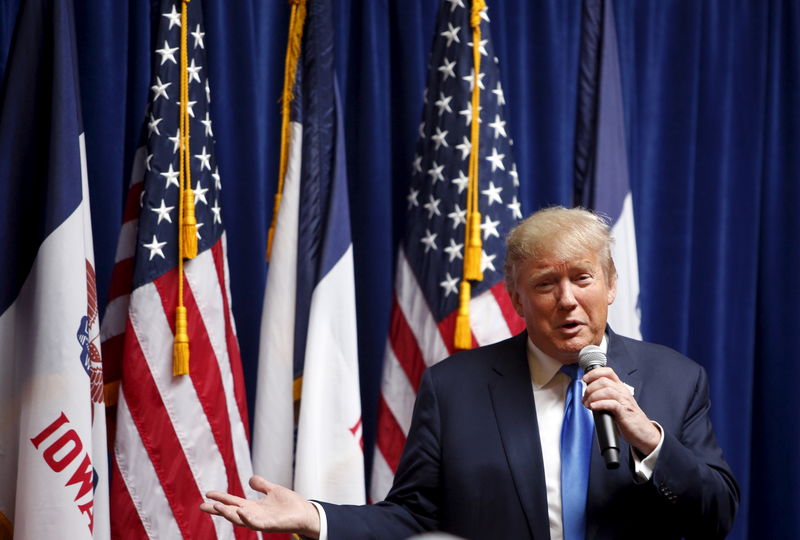By Susan Cornwell
BALTIMORE - The prospect of running for re-election with Donald Trump at the top of the Republican ticket was worrying some party lawmakers as they huddled for an annual retreat, where a few forecast trouble if Trump becomes the party's presidential nominee.
"Heaven help us," Representative Peter Roskam said when asked about it by a reporter. But the Illinois Republican quickly added, "I'm not going to comment on the presidential candidates at this point."
That reticence was shared by many lawmakers asked about running on Trump's coattails during an event in Baltimore where Senate and House of Representatives Republicans gathered to talk through their priorities for a coming year whose highlight is the November election. Some were not reluctant to express concerns.
Trump would not help Republicans if he topped the ticket, despite his appeal to Americans fed up with politicians, said Representative Justin Amash, a favorite of the conservative Tea Party movement who has endorsed Kentucky Republican Senator Rand Paul for president.
"He does appeal to the anger," Amash said of Trump, the outspoken real estate mogul who is front-runner to be the party's presidential nominee.
But he said Trump's "policy prescriptions will take us in the wrong direction, and it won't be long before many of those people are angry at him and angry at Republicans again."
The idea of Trump capturing the Republican nomination seemed highly unlikely just months ago, but it was sinking in as an actual possibility this week across the Republican Party.
In addition to voting for a new president, Americans will elect members of the Senate and the House on Nov. 8. In U.S. politics, a party's presidential nominee has a big impact on the campaigns of candidates for both chambers of Congress.
TRYING NOT TO TALK ABOUT TRUMP
At the party gathering, Republican leaders were keen to talk policy, not presidential politics. "What happens above us on the presidential ballot, you really don't control," Senator John Thune, a senior party leader from South Dakota, told reporters.
House Speaker Paul Ryan, of Wisconsin, said: "We are not sitting here thinking about who the nominee is going to be. We don't have time to think about that."
But in the hallways of the retreat, at a hotel on Baltimore's restored waterfront, Trump was often the hot topic. He is leading national opinion polls ahead of the Feb. 1 Iowa caucus, the first step in the nominating process.
Representative Jason Chaffetz said it was important to have a presidential nominee who will not "embarrass" the rest of the party's candidates as they defend the Republican majorities in both congressional chambers.
Chaffetz, who is from Utah, has endorsed Marco Rubio, a Republican senator from Florida. Polls show Rubio in third place behind Trump and Texas Senator Ted Cruz in Iowa.
"Marco Rubio is not going to embarrass us ... He's not as sensational in his comments as the others, but there's a good quality to that, and I think that's also something you look for in a president," Chaffetz said.
Among other proposals, Trump has called for a temporary ban on Muslims entering the United States and a wall along the U.S. border with Mexico to stop the flow of illegal immigrants.
Representative Tom Cole said Republicans' fate will be linked closely to the Republican nominee, whoever it is.
Trump would be a wild card, said Cole, of Oklahoma. "I don't know what he (Trump) will do. I can see a situation where he could be a great asset, because I do think he will bring some people out (to vote) who have not been brought before."
Representative Peter King of New York agreed that Trump is "more of a gamble" at the top of the ticket.

"The conventional wisdom is that he would hurt more than he would help," said King, who was unable to attend the retreat but spoke by telephone. "But on the other hand, he is tapping into something (among voters) out there."